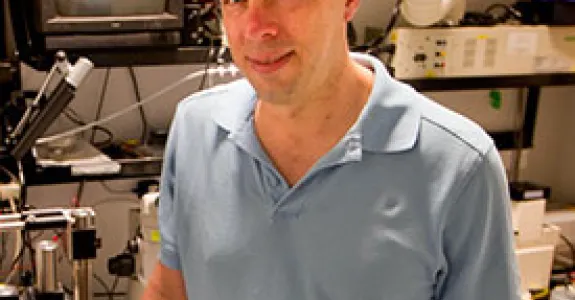
Dr. Mark Davis is interested in how T and B lymphocytes recognize specific antigens. This interest includes the structural and biochemical underpinnings of T cell receptor binding and signal transduction and the dynamics of molecular movement at the T cell/antigen-presenting cell interface. He is also interested in the unique challenges of (and solutions to) studying the human immune system, particularly in the context of infectious diseases and vaccination strategies.
Studies have ranged from analyzing the inherent diversity of these highly diverse molecules and relating it to their function and specificity (Davis and Bjorkman 1988; Xu et al 2000) to basic aspects of TCR biochemistry and cell biology (Huppa et al 2010, Lillemeier et al, 2010). The Davis lab also developed peptide-MHC tetramers which are useful for staining and isolating specific T cells in both basic science and clinical applications (Altman et al 1996; Newell et al., 2012, 2013).
They have also been very much involved in trying to relate what we have learned in basic immunology using mouse models to understanding the human immune system. Here they have employed systems biology approaches to understand vaccine responses (Furman et al., 2013), twin studies to understand the relative influence of environment versus genetics (ongoing) and T cell repertoire studies to understand self vs non-self capabilities and the origin of memory T cell responses (Su et al 2013). In this last paper, what is particularly interesting is that they have found that healthy adults have abundant numbers of pathogen-specific memory T cells even for viruses that they have never been exposed to, whereas newborns do not. This suggests that there is an unexpected source of protective lymphocytes in adults that likely impact disease resistance and conversely, indicates why young children are so vulnerable to infectious diseases. In general, the Davis lab has found that analyzing the human immune system has presented them with many surprises and complements what they have learned in mice.





